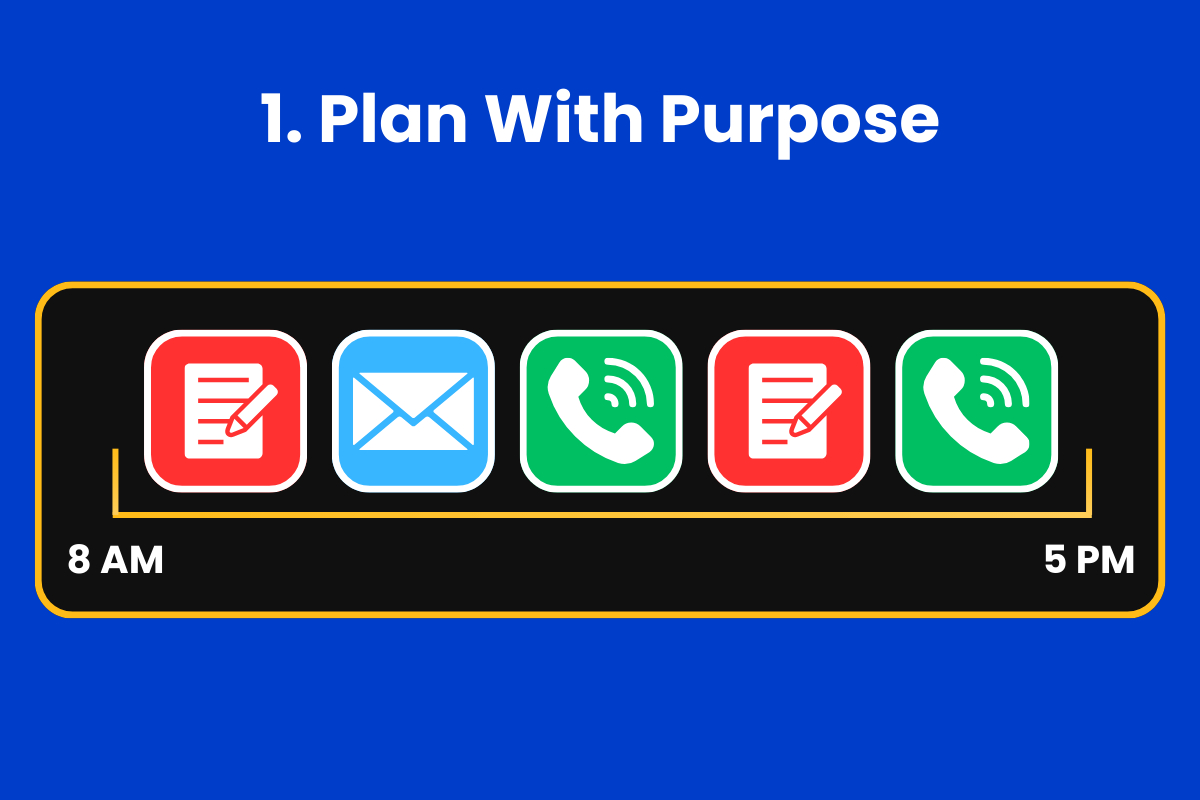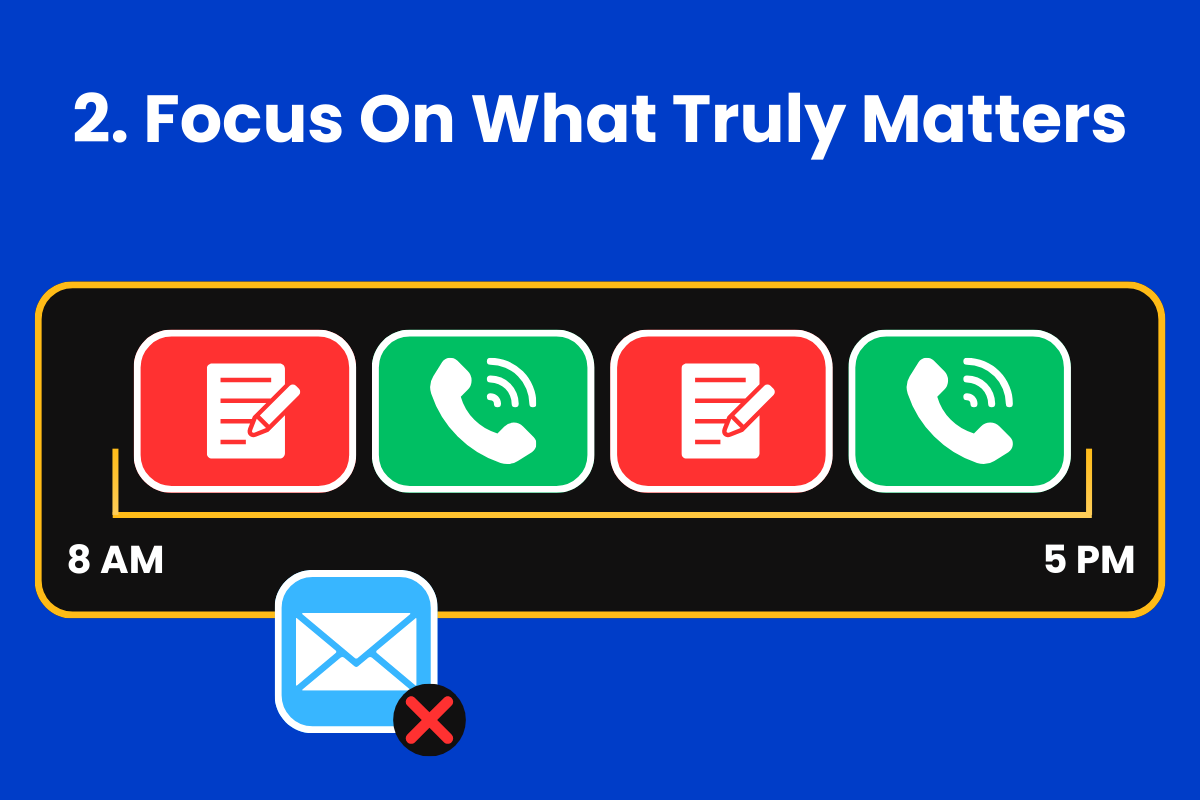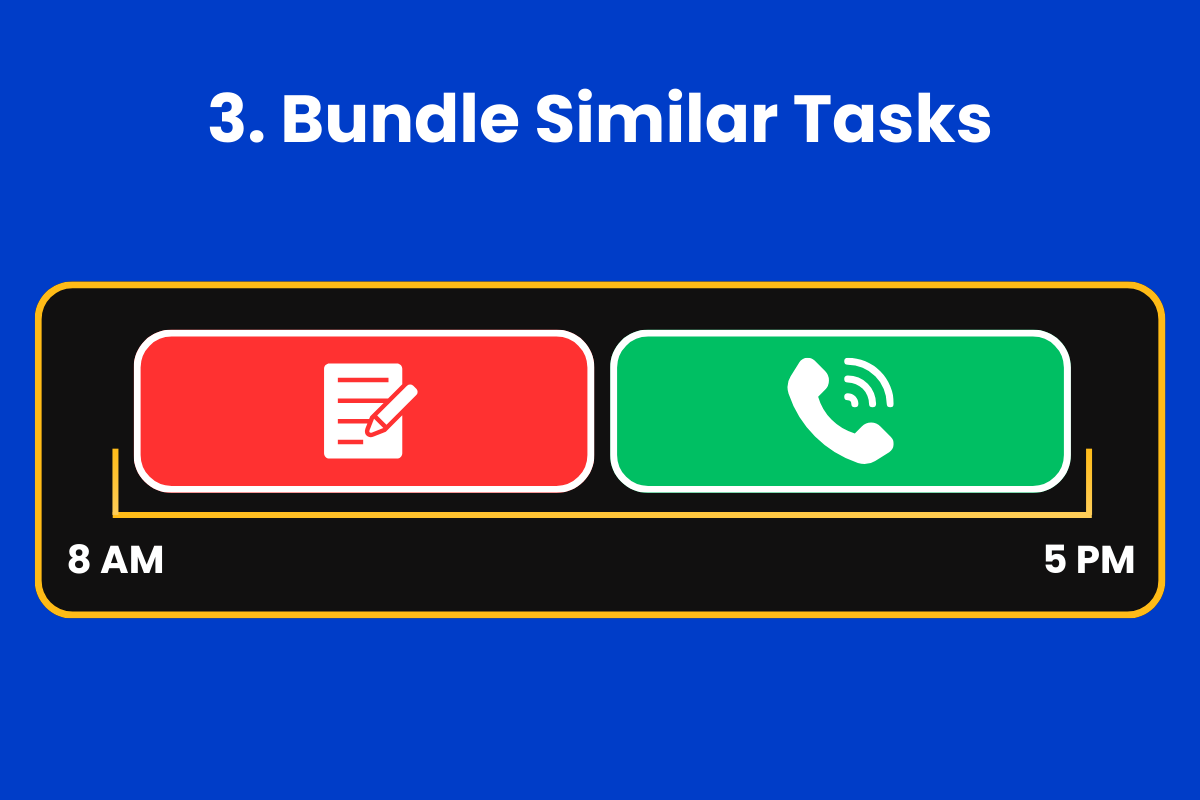Do you ever feel like your days should be 30 hours long just to keep up?
Between work, chores, family, friends, and personal goals, it’s easy to feel like time is slipping through your fingers. The pressure to juggle it all can cause stress, anxiety, and even burnout.
The truth? You don’t need more hours in a day. You just need smarter strategies. In this post, you’ll discover 3 proven ways to use your time more effectively, so you can boost your productivity without feeling overwhelmed.
Contents
Strategy 1: Plan with Purpose
Planning is the foundation of effective time use. Without a plan, your days get filled by other people’s priorities instead of your own.
Start simple: get a calendar. Digital (like Google Calendar) or paper, whatever works best for you. The key is to actually use it.
One powerful method is time blocking. Divide your day into blocks of time, each assigned to a specific task or activity. For example:
9:00–11:00 → Deep work (writing, coding, creating)
11:00–12:00 → Emails & admin
12:00–13:00 → Lunch + walk
13:00–15:00 → Meetings
This way, every hour already has a job. You avoid decision fatigue and the “what should I do next?” spiral.
Tip: Plan your week in advance during a weekly review. And, at the end of each day, quickly check your schedule and adjust if needed. Think of it like steering a ship: you set the course, but make small corrections as you go. Productivity journaling can be helpful as well.
Planning doesn’t just keep you organized; it also creates awareness of where your time really goes. And awareness is the first step to using time more effectively.

▼ Ad
Strategy 2: Focus on What Truly Matters
Many of us try to do everything, and end up diluting our energy. The real secret to using time effectively is focusing on what actually moves the needle.
Here’s a simple filter: look at your calendar and ask, “Does this add value to my life or goals?”
If the answer is no, cut it. Saying “yes” to everything is the fastest road to burnout. Saying “no” creates space for what matters most.
Example: maybe you have a full-time job and also volunteer on weekends. If volunteering drains you instead of fulfilling you, it’s okay to step back. Freeing that time and energy could improve your performance at work, or open space for a new hobby, rest, or personal project that excites you more.
When you focus on fewer, higher-value activities, you’ll notice you get far more done – and with less stress.

Strategy 3: Bundle Similar Tasks
Switching constantly between tasks kills productivity. Psychologists call this attention residue: when part of your brain is still stuck on the last task, making it harder to dive into the next one.
The fix? Bundle similar tasks. Group things that use the same type of thinking and do them back-to-back.
For example:
Writing a blog post + drafting an email newsletter.
Paying bills + reviewing your budget.
Running errands + grocery shopping.
When you batch tasks like this, you build momentum. Instead of stopping and starting, you stay in the same mental “gear” and work faster, with less friction.
This simple shift helps you use your time effectively by reducing wasted energy from task switching.

▼ Ad
Conclusion: How to Use Your Time More Effectively
Time is your most valuable resource. Instead of wishing for more hours in a day, take control with these three strategies:
Plan with time blocking to create structure and awareness.
Focus on what truly matters and cut the rest.
Bundle similar tasks to reduce distractions and work efficiently.
Use these strategies consistently, and you won’t need a 30-hour day. You’ll finally feel in control of your time and your life.
Level-Up Actions
- Get a digital calendar or physical planner.
- Use time blocking to divide your day in chunks of tasks/events.
- Plan your days a week in advance.
- Cut out items that do not add enough value to your life.
- Bundle similar tasks/events.




